Physical properties testing expertise includes key physical property characteristics for a wide range of materials. Our team can support Food Contact Materials physical properties testing. Below are some physical properties testing as per related standard.
Physical Properties Testing in China for Food Contact Materials
Besides chemical testing, the Food Contact Materials are applicable for physical properties testing. More and More customers pay attention to physical properties testing.
Food Contact Materials Physical Properties Testing
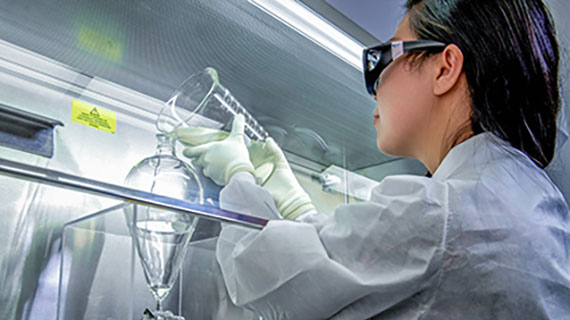
- Cookware - Domestic cookware for use on top of a stove, cooker or hob under testing standard EN 12983-1.
- Ovenware -it is tested based on standard EN 13834. EN 13834 specifies safety and performance requirements for items of ovenware for use in domestic ovens. It is applicable to ovenware regardless of materials or methods of manufacture. This package includes all applicable testing except chemical testing.
-
Dishwashing resistance --Mechanical dishwashing resistance of utensils is tested under EN 12875. Part 1: Reference test method for domestic articles.
EN 12875 Part 1 specifies a test method to assess the resistance of domestic articles made from ceramic, glass, glass ceramic, vitreous enamel, metal and plastics against the combined chemical, thermal and mechanical stresses of mechanical dishwashing in domestic dishwashers. -
Microwave resistance , Materials and articles in contact with food stuffs - Test method for the resistance to microwave heating of ceramic, glass, glass-ceramic or plastic cookware under testing standard EN 15284.
EN 15284 Microwave resistance test for the determination of the resistance to microwave heating of cookware made of ceramic, glass, glass-ceramic or plastics. It is applicable to articles that are intended for multiple re-use in a microwave oven. -
Thermal shock resistance ---Materials and articles in contact with foodstuffs - Test methods for thermal shock and thermal shock endurance. A physical and mechanical standard for ensuring the performance of glass material according to EU standard.
EN 1183 Thermal shock resistance for brittle materials, for example glass, glass-ceramics and ceramics intended for use in ovens or as tableware. - Vacuum Water Bottle --Materials and Articles in Contact with Foodstuffs - Insulated Containers for Domestic Use, the testing standard is EN 12546-1 , Part 1: Specification for Vacuum Ware, Insulated Flasks and Jugs.
Testing requirements :
- Pouring:No stains caused by spluttering shall occur when liquid is poured out of the insulated container.
- Stability:At any level of filling from empty up to its nominal capacity, the insulated container shall not overbalance when placed on a 10 degree-inclined plane.
- Heat Loss:Pre-heat the container for 5 min with 95degree Celsius hot water. Empty the container and immediately fill it again with 95degree Celsius hot water. Leave the container for 6 hours at 20degree Celsius, then check the water temperature.
- Thermal Shock:Fill the container with 15degree Celsius water. Leave for 5 min, then empty and re-fill it with 95degree Celsius hot water, again for 5 min. Empty and check if the filler is intact.
- Stopper Leakage & Seal Leakage:No leakage or drop in water level shall occur after filling the container with water for a certain period of time.
- Impact:The container shall not break after being made to drop from a certain height.
- Handle:The handle shall not be damaged in the weight loading test.
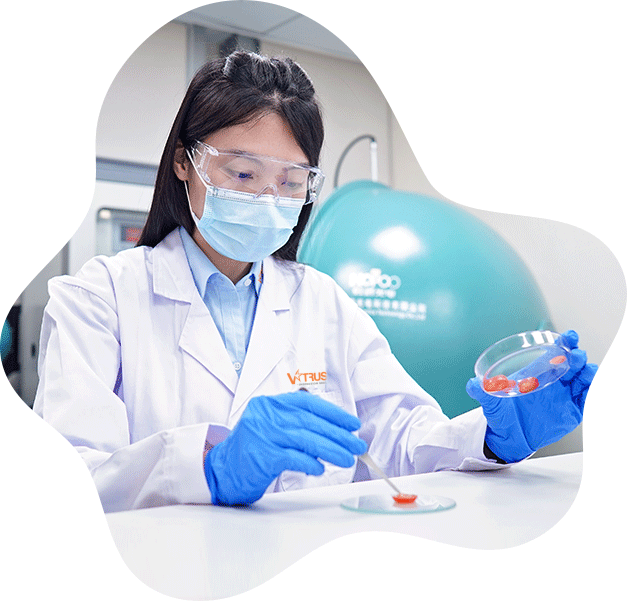
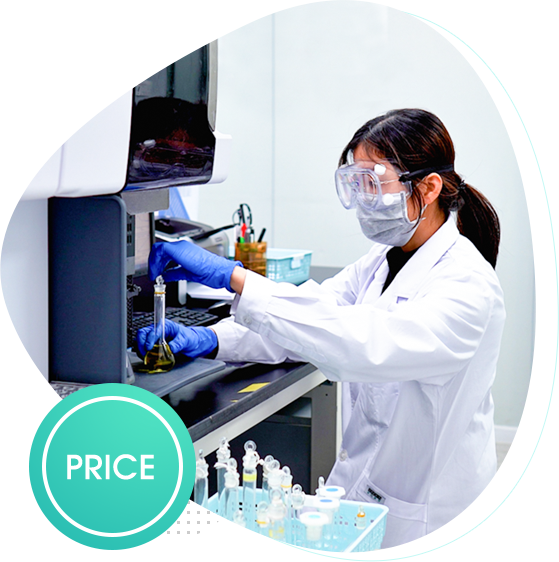
V-Trust, Your Reliable Testing Partner
Volume discount available
For specific testing proposals to your products, please contact us via labtest@v-trust.com.
- Internationally recognized, including Europe, North & South America
- Accreditation by All Major Markets including Europe, North & South America
- Free Sample Picking, One-Stop Service from Lab Testing to On-Site Inspection
- Save 20% in testing costs vs. your current testing solutions
- Free inquiry and consultancy for products testing standard
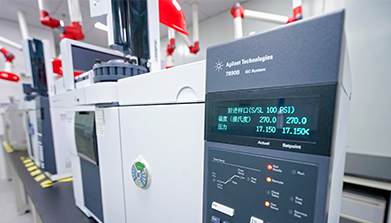
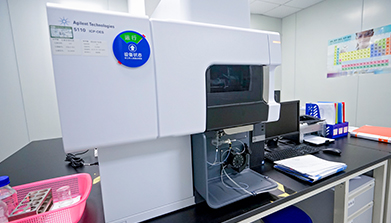
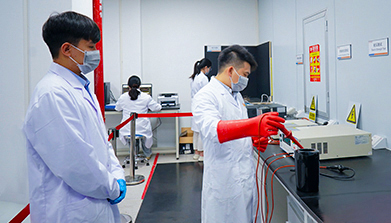
Get A Quote
GENERAL CONDITIONS OF SERVICES
-
General
- 1.1 Unless otherwise specifically and expressly agreed in writing by V-Trust Inspection Service Group (hereinafter called "V-Trust"), all services provided by V-Trust are governed by the following general conditions of service, which prevail any purchase terms and conditions.
- 1.2 Services carried out by V-Trust, on behalf of an entity or individual from whom the instructions to act have originated will be carried out by using techniques and processes that permit an independent, impartial and objective approach. The end result of the service will consist in a certificate or document (hereinafter called the "report") communicating the collection of information V-Trust has been requested to supply and will be delivered as a fax, a written document or an online report.
- 1.3 No other party than the client shall be entitled to give instructions to V-Trust, particularly on the scope of lab testing or delivery of report, unless so authorized by the client.
-
Provision of services
V-Trust's lab which is accredited by CNAS, CMA & CPSC. Where a Test report or Certificate is issued to the Client, V-Trust will provide the Services using reasonable care and skill and in accordance with the Codes of Practice or Regulations. A copy of such Codes of Practice, and any amendments to it as may be issued from time to time, will be supplied by V-Trust to the Client upon commencement of the Services. V-Trust's services (hereinafter called "services") consist of work performed, including but not limited to:
Food contact materials: LFGB, DGCCRF, EC1935/2004 (EU), FDA, etc.
Electronics & Electrical appliances: RoHS, LVD, EMC, FCC, RED, etc.
Infant & child products: EN71, ASTM F963, CPSIA, CPC, etc.
Harmful substances: REACH, POPs, California 65, etc.
-
V-Trust's obligations and undertakings
-
3.1 V-Trust expressly reserves the right to act at its own discretion in accepting or declining a request for service, and cannot be compelled to accept or be held liable for declining a request for services or for products:
- Falling out of its scope of activity or specialization.
- Presenting geographical accessibility problems, such as services to be rendered or products to be found in restricted or highly remote areas.
- Requiring V-Trust to obtain special permissions to operate such as governmental permissions.
-
3.2 V-Trust undertakes to supply the services it has accepted to carry out in a professional and timely manner, in accordance with proper professional practice and in compliance with:
- The client's special instructions when ordering the service and as confirmed by V-Trust – the terms of reference should be duly signed by the client and V-Trust, and in the absence of such instructions:
- Any relevant professional standard, trade custom, usage or practice.
- Such methods as V-Trust shall consider appropriate on technical, operational and/or financial grounds.
- 3.3 V-Trust shall exercise due care and skill in the selection and assignment of its personnel.
- 3.4 Information stated in Reports of Findings is derived from the results of testing procedures carried out in accordance with the instructions of Client, and/or our assessment of such results on the basis of any technical standards, trade custom or practice, or other circumstances which should in our professional opinion be taken into account.
- 3.5 Reports of Findings issued further to the testing of samples contain the Company’s opinion on those samples only and do not express any opinion upon the lot from which the samples were drawn.
- 3.6 All samples shall be retained for a maximum of 2 months or such other shorter time period as the nature of the sample permits and then returned to Client or otherwise disposed of at V-Trust’s discretion after which time V-Trust shall cease to have any responsibility for such samples. Storage of samples for more than 2 months shall incur a storage charge payable by Client. Client will be billed a handling and freight fee if samples are returned. Special disposal charges will be billed to Client if incurred.
-
3.1 V-Trust expressly reserves the right to act at its own discretion in accepting or declining a request for service, and cannot be compelled to accept or be held liable for declining a request for services or for products:
-
Client's obligations and undertakings
- The client agrees:
- 4.1 To take all reasonable steps to assure V-Trust has access to the materials on which service will be based.
- 4.2 To provide V-Trust with all information and samples, as well as the documents necessary to complete requested services, in a timely manner (and in any event not later than 48 hours prior to the desired intervention), except for generally available documents such as codes and standards, either directly or through suppliers or agents of the client.
- 4.3 To insure that adequate instructions and notice are given to V-Trust in due time to facilitate proper performance for the service requested.
- 4.4 Generally to render all reasonable assistance to V-Trust in providing necessary instructions, information, documents, safety and security information in connection with the working conditions, required equipment and access (as the case may be).
- 4.5 Documents reflecting engagements between the client and third parties or third parties' documents - if received by V-Trust - are considered to be for information only and do not extend or restrict the scope of the services or obligations accepted by V-Trust.
- 4.6 Client acknowledges that V-Trust, by providing the services, neither takes the place of Client or any third party, nor releases them from any of their obligations, nor otherwise assumes, abridges, abrogates or undertakes to discharge any duty of Client to any third party or that of any third party to Client.
-
Invoicing, fees and payment
- Please mark your T/T reference and write your V-Trust invoice No. in the subject of email. Normally clients need to pay the lab testing & certification fee before the test/certificate arrangement.
- 5.1 In the case where the client terminates an order for a V-Trust service within 24 hours of the scheduled date of service commencement will be charged at full price.
- 5.2 In the event that V-Trust is prevented for any reason beyond its control from performing or completing requested services, including cases of early termination of service for any reason not attributable to V-Trust, the client agrees to :5.2.1 Reimburse any expenditure, and out of pocket expenses made or incurred in relation to this service;5.2.2 Pay proportion of fees due for services actually rendered and to release V-Trust from all responsibility for partial or non-performance of the services.
- 5.3 In the event when the service must be cancelled on the intended service day, because of wrong information or samples given by client or factory, full service fee will be charged.
- 5.4 In the case where the client cancels a paid service that is already in progress (e.g. contacting the factory for sample delivery, reviewing the testing requirements), the client can either choose to keep the paid amount in his balance for further service, or to get a refund. 20% handling fee and related bank charges will be deducted if refund is chosen.
- 5.5 The lab testing fee is subject to the final samples to be tested, and if there is any difference from the testing proposal sent to clients before final sample arrival, V-Trust will update the final testing fee and seek client’s confirmation.
- 5.6 The minimum charge for any Lab Test order is US$100.
-
Liability and indemnification
-
6.1 Limitation of liability
- 6.1.1 V-Trust is neither an insurer nor a guarantor and disclaims such capacity. Clients seeking a guarantee against loss or damage should obtain appropriate insurance.
- 6.1.2 Subject to the client's instructions as accepted by V-Trust (as specified in the terms of reference), V-Trust will issue the report relating to the facts as recorded by it within the limits of the instructions received and on the basis of the documents and information provided by the client (refer to § 4 above), but V-Trust is under no obligation to report upon any facts or circumstances which are outside the specific scope of its assignment.
- 6.1.3 V-Trust advice is given only in relation to documents and information provided by the client, and V-Trust cannot be held liable if it has received incomplete or erroneous information.
- 6.1.4 In the event of false information or wrong testing samples being given to V-Trust by a third party, V-Trust accepts no liability.
- 6.1.5 V-Trust undertakes to use its best efforts and to exercise due care and skill in the performance of its services, and accepts liability only in case of negligence proven by the client.
-
6.2 Indemnification
- 6.2.1 In the event of V-Trust being held liable in respect of any claim for loss, damage or expense of whatever nature and however arising, its liability to the client shall in no circumstances exceed 10 times the amount of the fee paid in respect of the specific service which gives rise to such claim or US$20,000 (or its equivalent in local currency), whichever is the lesser
- 6.2.2 The client shall guarantee and indemnify V-Trust and its servants, agents or subcontractors against all claims made by third parties for loss, damage or expense of what nature arising, relating to the performance or non-performance of any service, to the extent that the total sum of such claims exceeds the limitation of liability mentioned in Article 6.2.1.
- 6.3 In the event of any claim, notice must be given to headquarters which is located at 10/F, Canton Fair Tower, 679 Fengpu Road, Pazhou, Guangzhou, China. Tel: +86-20-89089880, Fax: +86-20-89089925 within seven days following discovery of the facts, or three months from the completion of the V-Trust service.
-
6.1 Limitation of liability
-
Termination of services
- V-Trust shall be entitled to automatically either terminate and/or suspend provision of services in the event that:
- 7.1 The client commits any material breach of its obligations under these terms and conditions and/or the terms of reference and (if such breach shall be capable of remedy) fails to make good such breach within ten days of receipt of notice served by the non-defaulting party (V-Trust) requiring it so to do. Material breaches include but are not limited to willful and deliberate breaches by the client of its obligations mentioned herein.
- 7.2 The client is insolvent or unable to pay its debts, in suspension of payments, or convenes a meeting of or compounds with its creditors or has a receiving order made against it or (other than for the purposes of bona fide amalgamation or reconstruction) has an order made or a resolution passed for its winding up or for the appointment of an administrator to manage its affairs, business and property or has a receiver or administrative receiver appointed over any of its assets or undertaking or if V-Trust takes or suffers any similar or analogous action in consequence of debt.
-
Miscellaneous
- 8.1 V-Trust, and/or its subsidiaries and/or affiliates and the client undertake not to divulge to any third party confidential information obtained from the other party regarding the execution of V-Trust services.
- 8.2 The report will reflect findings of the service at the time and place of service. This report does not discharge sellers and/or suppliers from their legal and/or commercial obligations towards the client.
-
Applicable and Governing law, Jurisdiction and settlement of dispute
- 9.1 Unless otherwise provided, these terms and conditions shall be governed by and construed in accordance with Chinese Law.
- All disputes or differences of any kind whatsoever between the parties in connection with or arising out of the services shall be submitted to the non-exclusive jurisdiction of the courts of Guangzhou, China.

